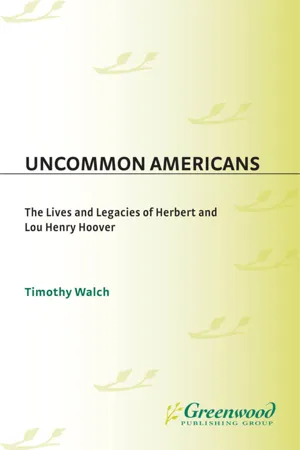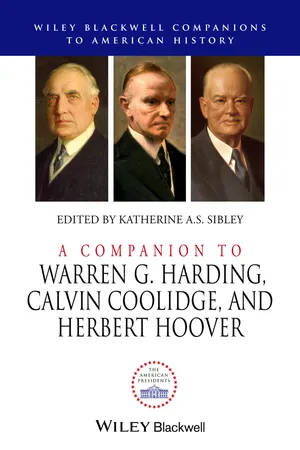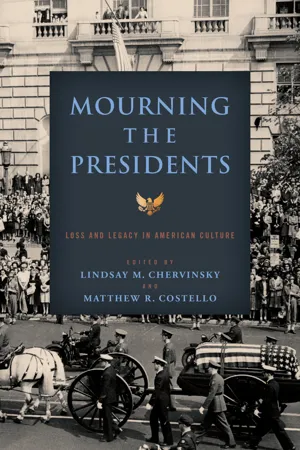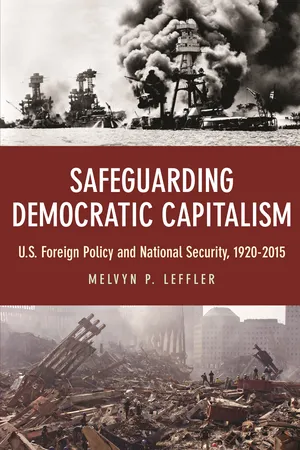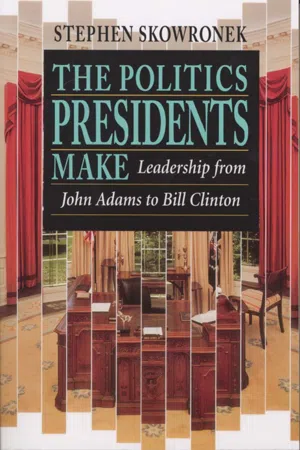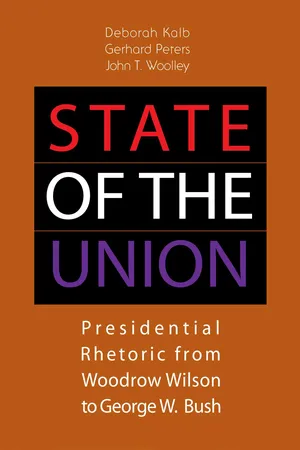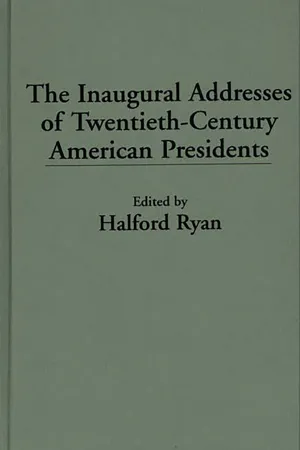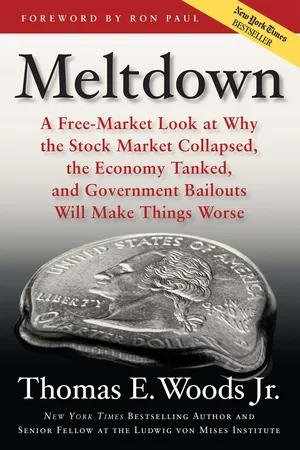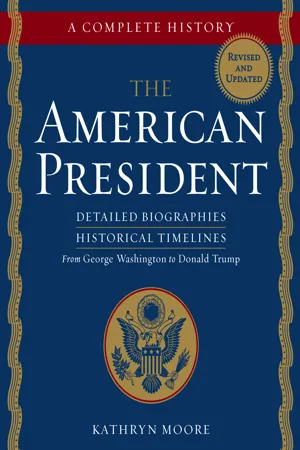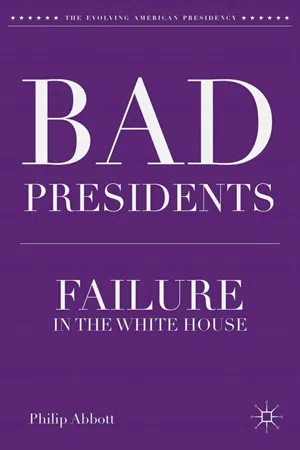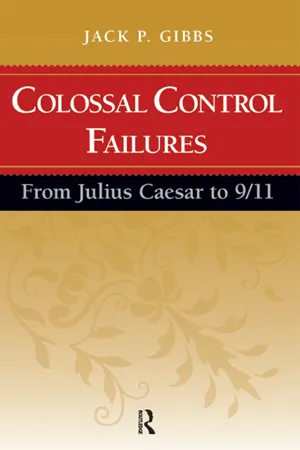History
President Hoover
President Hoover was the 31st President of the United States, serving from 1929 to 1933. He is often associated with the Great Depression, as his presidency coincided with the start of this economic crisis. Hoover's response to the Depression was criticized, and he was unable to effectively address the widespread unemployment and financial hardship during his time in office.
Written by Perlego with AI-assistance
Related key terms
1 of 5
12 Key excerpts on "President Hoover"
- eBook - PDF
Uncommon Americans
The Lives and Legacies of Herbert and Lou Henry Hoover
- Timothy Walch(Author)
- 2003(Publication Date)
- Praeger(Publisher)
For numerous reasons, it seemed that America had exactly the right presi- dent in the White House to lead it out of an economic downturn. Hoover had in large part based his claim to public office on a long history of crisis management, beginning with his humanitarian achievement in Europe dur- ing the Great War. His public image as the world's crisis manager was evi- dent also in his work in the great Mississippi flood of 1927. Bypassing President Coolidge, numerous governors had appealed directly to the sec- retary of commerce for assistance. 423 Emergency relief was Hoover's call- ing card in 1928; Democrats attacked Hoover on many counts in 1928 and 1929, but rarely on his skills as a crisis manager. Beyond vast experience dealing with human catastrophe, Hoover pos- sessed other characteristics that should have served him well in confront- ing the Depression. He stands as the most cosmopolitan president of the twentieth century, perhaps our most cosmopolitan leader altogether. His business and philanthropic work spanned the globe and had led him to an appreciation of America's international position fuller than those most of his predecessors or, for that matter, his successors. Hoover, ever the Pro- gressive, stood at the head of a generation of Americans alert to European social ideas. While articulating and defending a peculiarly American sys- tem, Hoover also was influenced by policies and institutions he had seen overseas. Looking back, there is a Jeffersonian quality to his varied inter- ests and engagements. In foreign affairs, Hoover stands out for his anti-imperialist vision and his consistent support of disarmament. - Katherine A.S. Sibley(Author)
- 2014(Publication Date)
- Wiley-Blackwell(Publisher)
Yet it shapes up as a cruel irony of history that an individual of indisputable humanitarian instincts came to be portrayed as heartless, cold, and callous in the face of widespread human suffering during the Great Depression of the early 1930s. The economic catastrophe undoubtedly ruined many formerly prosperous people of all classes, races, creeds, and colors. The Great Depression also proved Hoover’s undoing, ruining his public reputation, erasing the memory of his heroic early works, and serving as his historical legacy, as surely as blood spots to Lady Macbeth. Hoover’s failure and the memory thereof dragged his political party down as well, plunging the Republicans into the wilderness for the next twenty years.Still, the facts of Hoover’s biographical specifics and the wildly fluctuating nature of his public reputation obscure a central question: Who was Herbert Hoover? An earlier generation of historians, notably John Hicks, William Leuchtenburg, and Arthur Schlesinger, Jr., scorned Hoover as the high priest of the old and discredited nineteenth-century, Manchester liberalism. Much of the scholarly work of this school in retrospect seems primarily motivated by a desire to polish the reputation of Hoover’s presidential successor, Franklin D. Roosevelt, more than to dispassionately assess Herbert Hoover.By the 1960s some of this Hoover antipathy receded and, upon Hoover’s death in 1964, historians seemed willing to take a more measured look at the man his aides called “The Chief.” The school of historians known collectively as the “New Left” adopted a friendlier view of Hoover than had the earlier generation of historians and biographers. A number of New Left historians, including the unofficial dean of the historical school, William Appleman Williams, pointed out that Hoover had actually originated the New Deal with his program for voluntary cooperation between labor, business, and government. The Hoover program, which he termed “voluntarism,” stressed a corporatist approach with an emphasis on cooperation among both private and public organizations, and the New Left considered this as a useful alternative to the highly centralized model constructed by FDR and the Democrats after 1932 (Williams 1961). Coming from a different perspective, Glen Jeansonne, a more recent Hoover biographer, argues that Hoover’s approach could be considered consistent with the voluntary associations noted by De Tocqueville and others (Jeansonne 2012).- eBook - ePub
Mourning the Presidents
Loss and Legacy in American Culture
- Lindsay M. Chervinsky, Matthew R. Costello, Lindsay M. Chervinsky, Matthew R. Costello(Authors)
- 2023(Publication Date)
- University of Virginia Press(Publisher)
Before entering the White House, he had been a Progressive of sorts: a backer of Theodore Roosevelt’s Bull Moose campaign in 1912 and an advocate of solving problems via scientific reasoning and impartial administration. Expectations for his presidency soared, but Hoover’s responses to the Great Depression—reliance on private charity to help poor people, confidence-boosting sessions with industrial leaders, loans to banks, and acceleration of public works projects—failed to curb unemployment and allay discontent. Americans blamed him for hard times by labeling impoverished areas “Hoovervilles” and bemoaning “Hoover’s depression.” 10 The administration’s heavy-handed expulsion of indigent veterans in the Bonus Army from Washington, DC, in 1932 sealed Hoover’s fate: He lost to FDR in a landslide. Following the defeat, Hoover stayed politically engaged, albeit with few positive results. He angled without success for the Republican nominations in 1936 and 1940, and he assailed the New Deal as “collectivism” and at odds with “the American system of liberty.” 11 Such verbal salvos positioned Hoover closer to conservatives, who earlier had distrusted him, while making him a “forgotten Progressive and remembered reactionary” to the general public. 12 Hoover’s opposition to US involvement in World War II earned praise from isolationists, but the attack on Pearl Harbor in 1941 left him sidelined: Roosevelt declined to give his former foe a wartime assignment and “raise him from the dead.” 13 Many Republicans, including presidential nominee Thomas E. Dewey, wanted no association with the former president or the Depression, which remained Hoover’s albatross. 14 In his Memoirs (1952), Hoover blamed the downturn on events overseas and on FDR’s New Deal, which he claimed had delayed recovery. 15 Yet a stale writing style hindered his argument - eBook - ePub
Safeguarding Democratic Capitalism
U.S. Foreign Policy and National Security, 1920-2015
- Melvyn P. Leffler(Author)
- 2017(Publication Date)
- Princeton University Press(Publisher)
2 Herbert Hoover, the “New Era,” and American Foreign Policy, 1921–1929 As a graduate student I read extensively in the burgeoning literature on the Progressive movement. New books and articles highlighted the diverse strands of progressivism and the complex motives of the so-called reformers. While Richard Hofstadter and George Mowry focused on the status revolution and the psychological adjustments necessitated by the economic transformation of the nation, Gabriel Kolko, Robert Wiebe, Alfred Chandler, and Samuel Hays illuminated the complexity of the business response and the importance of the managerial revolution under way. No student of the Progressive Era, however, could ignore the growing labor strife, the organization of working men and women, the challenge of assimilating millions of immigrants, and the spread of ideological radicalism. Robert Wiebe seemed most effectively to synthesize the divergent developments in his book The Search for Order, 1877–1920 (New York: Hill and Wang, 1967). In the quest for stability, professionals, managers, and enlightened businessmen loomed large. They appeared to possess the knowledge and the methods to study societal problems objectively, and to offer solutions that might reconcile clashing interests and serve the needs of the larger community without overextending the role of government. Herbert C. Hoover was such a man. In the 1970s, his place in American history was being reconceived by historians like Joan Hoff Wilson and Ellis Hawley. In their view, Hoover was not the heartless and dogmatic conservative who waged relentless war against the New Deal; actually, he was a “forgotten progressive.” (See Joan Hoff Wilson, Herbert Hoover: Forgotten Progressive [Boston: Little, Brown, and Company, 1975.]) Trained as an engineer, widely traveled, and committed to scientific management, Hoover wanted to use knowledge to transcend class divisions and national rivalries without overextending the reach of government - eBook - ePub
The Politics Presidents Make
Leadership from John Adams to Bill Clinton, Revised Edition
- Stephen Skowronek(Author)
- 1997(Publication Date)
- Belknap Press(Publisher)
Even as the economic crisis engulfed his presidency, Hoover remained active and methodically tested a range of different responses. Far from ignoring the severity of the situation, he employed the metaphors of wartime to combat it and became the first American president to meet a downturn in the business cycle with massive governmental interventions. Far from being shocked into paralysis, he secured virtually all his major proposals, including some critical departures from past practice. Far from standing fast against innovation, his administration anticipated much of what would occur during the early years of the New Deal. 4 Finally, we know that while Hoover’s policies did not bring recovery, neither did those of his more celebrated successor. Again, why would one great innovator fail so miserably and the next succeed so brilliantly? To the extent that Hoover revisionism adds credence to the “great misfortune” thesis, it makes an especially powerful case for political time in the explanation of presidential possibilities. Notwithstanding Theodore Roosevelt’s longings and Franklin Roosevelt’s example, Hoover’s experience highlights a dismal half-truth in the commonplace that great national crises spawn great political leaders. Not only does it remind us that a crisis tends to cut two ways—crushing one incumbent while elevating the next—it strongly suggests that the outcome turns rather bluntly on the incumbent’s political identity vis-à-vis the established regime. Despite his considerable efforts and manifest achievements, Hoover had little more success in political leadership than James Buchanan, for, like Buchanan, he was inextricably tied to the governmental commitments that events were calling into question. With political warrants wholly inadequate to controlling the meaning of his actions in the moment at hand, Hoover became the foil for a resurgent opposition bent on a general repudiation of the established regime - eBook - PDF
State of the Union
Presidential Rhetoric from Woodrow Wilson to George W. Bush
- Deborah Kalb, Gerhard Peters, John T. Woolley(Authors)
- 2006(Publication Date)
- CQ Press(Publisher)
Hoover mentioned the election results in his December 6 message—like his oth-ers, it was delivered in writing rather than in person—stating that acceptance of the results was evidence of the country’s strength. The outgoing president praised the generosity of the American people during the difficult winter then under way, mentioning contributions to assist those in need from December 6, 1932 ■ 241 private agencies and governments at all levels. Remaining consistent with the ide-ology evident in his first three messages, he suggested ways in which the gov-ernment could restore confidence among the public: balancing the budget through reduction of expenditures, reorganization of the nation’s banking system, and work-ing with other countries on economic issues. With the Great Depression showing no signs of ending, 1932 had been a par-ticularly difficult year. One incident that drew negative public attention was a march on Washington that summer by the so-called Bonus Army, a group of World War I veterans who demanded that a promised bonus—set for 1945—be paid immedi-ately. With the veterans camped out in the capital, the Hoover administration ordered the police and then the army to move in on the protestors. The situation turned violent, and images of the unrest contributed to Hoover’s unpopularity. Herbert Hoover’s four years in office ended ignominiously. The defeated presi-dent handed the reins over to Roosevelt in March 1933, marking a major shift in American political history. While Hoover believed in voluntarism and self-reliance, and therefore was unwilling to unleash the full potential power of the federal gov-ernment on the problems of the Depression, Roosevelt had no such qualms. Roo-sevelt’s accession to the White House would begin what many see as the modern presidency. - Halford Ryan, Halford Ryan, Halford R. Ryan(Authors)
- 1993(Publication Date)
- Praeger(Publisher)
Moreover, they distributed thou- sands of press releases and bulletins that cultivated an image of Hoover as a master of technology, an efficiency expert, and a great humanitarian. Adulatory stories in newspapers recounted his meteoric rise from a poor orphan to a globetrotting, adventurous entrepreneur, to a celebrated savior of the starving and suffering peoples of the world. In short, Hoover was characterized as a new kind of politician, possessing ex- ceptional competence, knowledge, and integrity.7 On the day of Hoover's inauguration, the public expected to behold a heroic figure who was particularly well suited for the Zeitgeist of the late 1920s. The majority believed that he could be counted on to continue the unrivaled prosperity and peace enjoyed under Republican admin- istrations since 1921. Moreover, Hoover was perceived by many as a progressive; he was popular with intellectuals, educated citizens, and liberal groups. In addition, the public viewed his background as a mining engineer and an organizational expert as an asset. Many thought that, as a practical man of action, an engineer was above politics, and "Hoo- ver's training appeared to give him special powers to do anything." 8 Significantly, the public did not expect Hoover to be a philosopher, orator, or revolutionary but rather a superb administrator. The public had voted not to overturn the political system but to secure more of the same, only done better. Hoover was the engineer who could make the great economic engine of the United States run more smoothly. By im- plication, then, Hoover's inaugural address did not have to trumpet new ideas, lead the United States in a dramatically new direction, or establish the new president as a brilliant rhetorical performer. Hoover merely had to validate the public image of the plain-spoken, humanitarian organizer who could take a fundamentally sound status quo and improve it.- eBook - ePub
Meltdown
The Classic Free-Market Analysis of the 2008 Financial Crisis
- Thomas E. Woods(Author)
- 2009(Publication Date)
- Regnery(Publisher)
For decades, American schoolchildren were—and many still are—taught that President Herbert Hoover, who is described as a strict proponent of laissez faire, sat back and did nothing as the Great Depression devastated the country. Only when Franklin Roosevelt took office in March 1933 was serious action taken to arrest the economy’s decline. Although most schoolteachers perpetuate this myth even now, it would be considered embarrassing in historical circles to repeat this version of events today.Hoover expressly said that the laissez-faire approach to the economy was a thing of the past. No peacetime president in American history intervened in the economy to the extent Hoover did. Among other things, he launched public works projects, raised taxes, extended emergency loans to failing firms, hobbled international trade, and lent money to the states for relief programs. He sought to prop up wages at a time when consumer prices were falling dramatically, thereby calling on firms in effect to give raises to their workers at a time of great business vulnerability. This is why Franklin Roosevelt accused Hoover, during the 1932 presidential campaign, of having presided over “the greatest spending administration in peacetime in all of history,” and derided him for believing “that we ought to center control of everything in Washington as rapidly as possible.” FDR’s running mate, John Nance Garner, declared that Hoover was “leading the country down the path to socialism.”33 Meanwhile, the Depression just grew worse and worse.In 1932, two dozen of the country’s leading economists gathered at a conference at the University of Chicago to make recommendations to the federal government. From the point of view of Austrian business cycle theory, the advice they offered to President Hoover was almost uniformly bad, including a more inflationary monetary policy, more subsidies for banks via the Reconstruction Finance Corporation, and a robust program of public works spending—highways, dams, and more.Two of the participants did offer sound advice, and were of course ignored. One was Gottfried von Haberler, a proponent of Austrian business cycle theory who denounced the “quacks . . . preaching inflationary measures.” The other voice of sense was H. Parker Willis, a Columbia University professor of economics and former editor of the Journal of Commerce who warned that further inflation of the money supply would only intensify existing resource misallocation. “Any such step at the present time,” he explained, “would simply mean an aggravation of existing difficulties, due to the fact that we are already overburdened with construction work and fixed capital that are not likely soon to be employed.” 34 - No longer available |Learn more
The American President
A Complete History
- Kathryn Moore, Kathryn Moore(Authors)
- 2018(Publication Date)
- Union Square & Co.(Publisher)
H ERBERT H OOVER ★ ★ ★ THIRTY-FIRST PRESIDENT ★ ★ ★LIFE SPAN • Born: August 10, 1874, in West Branch, Iowa • Died: October 20, 1964, in New York City NICKNAME • Bert, The Chief RELIGION • Quaker (Society of Friends) HIGHER EDUCATION • Stanford University, 1895 PROFESSION • Engineer MILITARY SERVICE • None FAMILY• Father: Jesse Clark Hoover (1846–1880)• Mother: Huldah Randall Minthorn Hoover (1848–1883)• Wife: Lou Henry Hoover (1874–1944); wed on February 10, 1899, in Monterey, California• Children: Herbert Charles (1903–1969); Allan Henry (1907–1993)POLITICAL LIFE• Relief efforts during World War I: Belgium Relief (1914–1919); US Food administrator (1917–1918); War Trade Council (1917–1920); Sugar Equalization Board (1918–1920); European Coal Council (1919); American Relief Administration (1919–1920); economic director of Supreme Economic Council (1918–1920); economic advisor to President Woodrow Wilson at Versailles Peace Conference• Secretary of commerce (1921–1928) PRESIDENCY • One term: March 4, 1929–March 4, 1933 • Republican• Reason for leaving office: defeated by Franklin D. Roosevelt in 1932 election• Vice president: Charles Curtis (1929–1933)ELECTION OF 1928• Electoral vote: Hoover 444; Alfred E. Smith 87• Popular vote: Hoover 21,427,123; Smith 15,015,464Ironically, the president whose name became synonymous with the stock market crash of 1929 and the Great Depression is the same one who worked tirelessly both before and after his presidency around the world to improve conditions for those less fortunate. His life was an American dream come true—the boy of modest means who works his way through school and then, with a driving determination to succeed, becomes a self-made millionaire.CABINET ★ ★ ★ ★ ★ ★ ★ ★ ★ ★SECRETARY OF STATE Henry L. Stimson (1929–1933) SECRETARY OF THE TREASURY Andrew W. Mellon (1929–1932) Ogden L. Mills (1932–1933) SECRETARY OF WAR James W. Good (Mar.–Nov. 1929) Patrick J. Hurley (1929–1933) - eBook - ePub
Bad Presidents
Failure in the White House
- P. Abbott(Author)
- 2013(Publication Date)
- Palgrave Macmillan(Publisher)
For instance, Martin Fausold has concluded that secretary of commerce Hoover was “the more liberal and progressive candidate in 1928.” 4 He received the support of Jane Addams, the Chicago reformer who had voted for Debs in 1920 and Robert H. La Follette in 1924. She endorsed Hoover’s farm policy and his positions on collective bargaining. (Hoover had gone on record as favoring the curtailment of “excessive use” of injunctions in labor disputes.) Addams also admired his concern for the poor. Similarly, Joan Hoff Wilson concluded in her biography that “the great engineer and humanitarian still lived beneath the new mantle of the Great Depression president,” and that Hoover was a “forgotten progressive and a remembered conservative.” 5 Some believe they have even detected in Hoover attempts to craft a political philosophy that was neither liberal nor conservative. William Appleman Williams describes Hoover as “the keystone in the arch that leads from Mark Hanna and Herbert Croly to such later figures as Nelson Rockefeller and Adolph Berle.” For Williams, Hoover was one of the first American leaders to see that the competitive capitalism characterizing much of American history was operationally obsolete and needed to be replaced by a cooperative system of both labor and capital led by a “class conscious industrial gentry.” 6 Ellis Hawley, a historian of both the 1920s and the New Deal, has taken Williams’s observation one-step further - eBook - ePub
The History of Economics
A Course for Students and Teachers
- Roger E. Backhouse, Keith Tribe(Authors)
- 2017(Publication Date)
- Agenda Publishing(Publisher)
Designs within Disorder: Franklin D. Roosevelt, the Economists, and the Shaping of American Economic Policy, 1933–1945 (Cambridge: Cambridge University Press, 1996) gives an account of the many approaches to the problem of the Great Depression and how Roosevelt chose between them.The generation of statistics, discussed in lecture 18 , is highly relevant to the problem of economics and policy. See the references by Duncan and Shelton, Tooze, Stapleford and Vanoli in that lecture.For international comparative studies of economics in different countries, covering policy-making and academic economics in varying proportions, see the series of volumes edited by A. W. Coats: Economists in Government (Durham, NC: Duke University Press, 1981); The Internationalisation of Economics since 1945, supplement to History of Political Economy, volume 28 (Durham, NC; Duke University Press, 1997); and The Development of Economics in Western Europe (London: Routledge, 2000).R. Middleton’s Charlatans or Saviours? Economists and the British Economy from Marshall to Meade (Cheltenham: Elgar, 1998) is the nearest thing to an equivalent of Bernstein’s book but dealing with Britain.W. Parsons’s The Economic Power of the Financial Press (New Brunswick, NJ: Rutgers University Press, 1990) looks at the role of journalists in changing British attitudes towards economic policy during the 1970s.3. Chronology
1885 Founding of American Economic Association 1914–18 First World War 1919 Versailles Peace Conference 1921–6 Hoover US Secretary of Commerce 1928–32 Hoover administration 1929 Wall Street Crash 1932–45 Roosevelt administration 1941–5 Second World War 1945–52 Truman administration 1952–60 Eisenhower administration 1960–3 Kennedy administration 1973 Oil crisis and emergence of stagflation 4. Lecture summary
- eBook - ePub
Colossal Control Failures
From Julius Caesar to 9/11
- Jack P. Gibbs(Author)
- 2015(Publication Date)
- Routledge(Publisher)
13 , Hoover’s is among those that clearly stemmed from an expansion of the range, scope, and diversity of his control attempts.More on Range ExpansionAs indicated previously, during his presidency Hoover was preoccupied with economic leaders. His preoccupation is understandable, given that he himself became a very wealthy “industry captain” before age 40. Nonetheless, if recovery from the economic quagmire required an increase in consumption, Hoover attempted to control the wrong targets. Economic leaders play an essential role in production; but if only because of their small number, they cannot increase personal consumption appreciably. Only the mentally challenged will deny that (1) during the Great Depression the average American would have consumed much more if given the opportunity and (2) the opportunity required more disposable income from direct relief or government employment. Hoover was adamantly opposed to those “opportunistic” means of control; and even if he had favored them, increasing consumption substantially would have required congressional action, something that he never even aspired to master (Fausold, 1985:51).When beseeching employers to maintain the number of their employees and current wages/salaries, Hoover was bound to encounter resistance. Compliance would have undercut the profit principle, the bedrock of American business then and now. Perhaps Hoover erred in assuming that the economic elites shared his inclination for public service, as when during and after World War I he directed the Commission for Relief in Belgium and later the American Relief Administration, organizations that may well have prevented millions of deaths from malnutrition. In any case, despite Hoover’s pleas, American employers created an army of unemployed and slashed wages/salaries drastically, with the ensuing decline in consumption of goods and services being inevitable.
Index pages curate the most relevant extracts from our library of academic textbooks. They’ve been created using an in-house natural language model (NLM), each adding context and meaning to key research topics.
